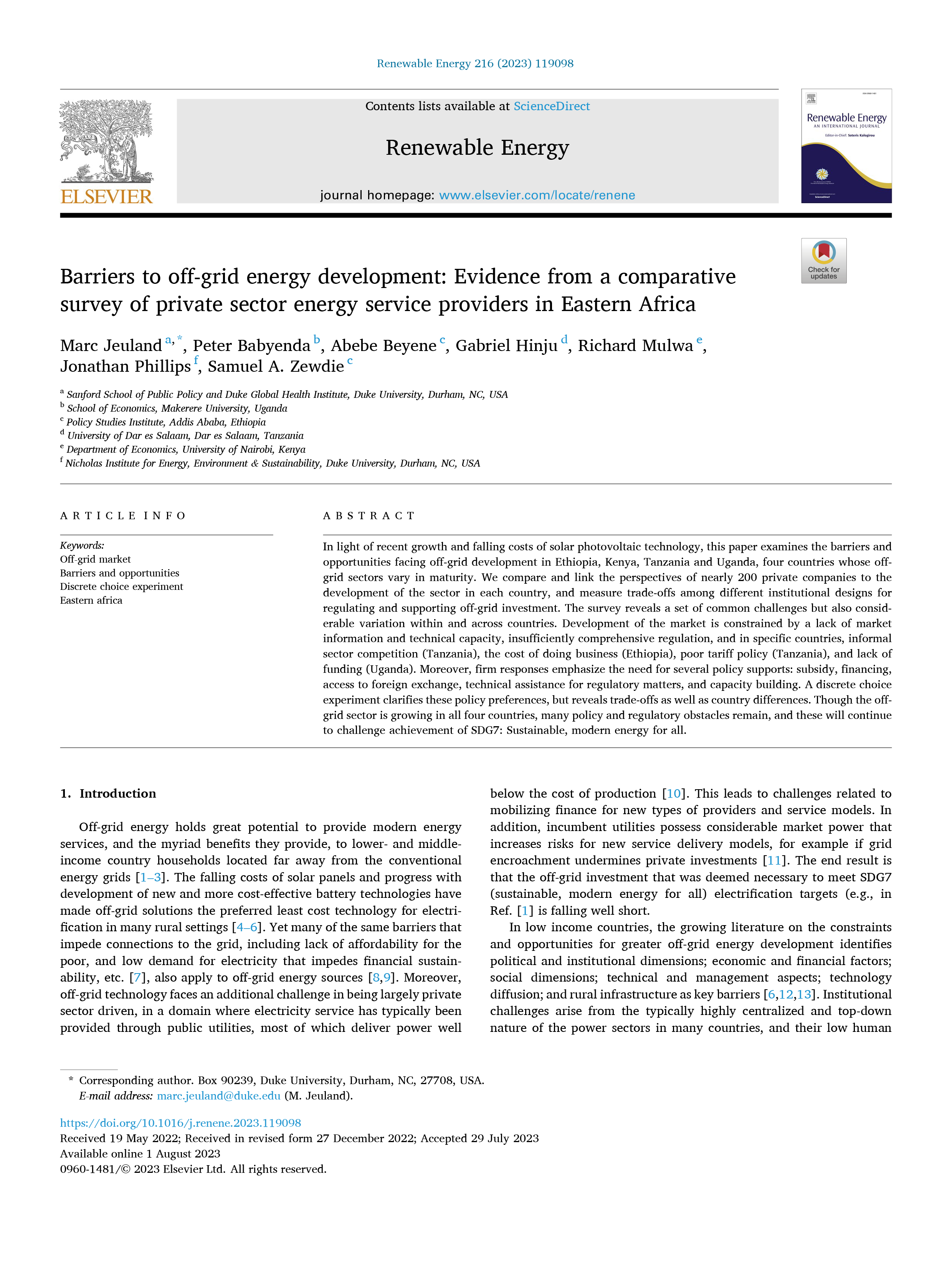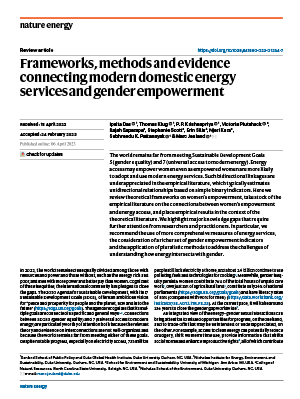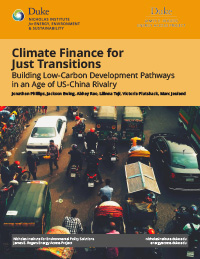Publications
Resilience Monetization and Credits Initiative: A Background Paper
Addressing climate change requires urgent and innovative action aimed at both mitigating its effects and addressing its most severe impacts. However, current investment levels are insufficient to match the escalating climate risks and damages. Despite the annual target of $100 billion established at the 2009 United Nations Climate Change Conference/Conference of Parties, climate finance directed to low- and middle-income countries continues to lag behind stated goals.
The State of Blended Finance 2023: Climate Edition
This year’s edition of the State of Blended Finance published by Convergence once again focuses on climate. Climate change continues to be central to the blended finance market and to sustainable development more broadly. Jackson Ewing, director of energy and climate policy at the Nicholas Institute, and Jonathan Phillips, director of the James E. Rogers Energy Access Project at Duke, were among the experts and stakeholders interviewed for the report. Ewing and Phillips offered insights on Just Energy Transition Partnerships as a partnership model for mobilizing climate blended finance.
Gender, Climate Finance and Inclusive Low-Carbon Transitions
Climate change will have significant long-term impacts on people, ecosystems and the global economy. To avoid catastrophic impacts, the world must mobilize finance at scale to deliver rapid and substantial low-carbon transitions across sectors and regions. Improving sustainable finance approaches and enhancing market alignment with this transition is crucial. Evidence shows that climate finance is not reaching those who need it most. Despite the significant climate risks faced by women and girls, only 2.3% of climate finance intends to principally support gender equality. Low-carbon transitions must be designed with proper understanding of contextual gender inequalities.
Barriers to Off-Grid Energy Development: Evidence from a Comparative Survey of Private Sector Energy Service Providers in Eastern Africa
In light of recent growth and falling costs of solar photovoltaic technology, this paper examines the barriers and opportunities facing off-grid development in Ethiopia, Kenya, Tanzania, and Uganda, four countries whose off-grid sectors vary in maturity.
Making Clean Energy Transitions More Inclusive: Evidence, Knowledge Gaps, and Policy Options in Low-Income Economies
Access to reliable renewable energy and energy efficiency can provide significant climate, development, and equity benefits. Transitions to clean energy are compatible with sustainable and equitable development and women’s economic empowerment. However, in the absence of adequate policies, they may reinforce existing inequalities. This policy brief summarizes the evidence that supports and knowledge gaps that hinder clean and inclusive energy transitions.
Frameworks, Methods and Evidence Connecting Modern Domestic Energy Services and Gender Empowerment
In 2022, the world remained unequally divided among those with resources and power and those without, such as the energy rich and poor, and men with more power and better pay than women. Cognizant of these inequities, the international community has pledged to close the gaps. This review examines theoretical frameworks on women’s empowerment, takes stock of the empirical literature on the connections between women’s empowerment and energy access, and places empirical results in the context of the theoretical literature.
Taxes and Subsidies and the Transition to Clean Cooking: A Review of Relevant Theoretical and Empirical Insights
Though many challenges impede low- and middle-income countries’ access to clean cooking energy, cost barriers are perhaps most significant. This report discusses the role of subsidy and tax policies—levied on both the supply and demand side of this market—in affecting progress toward universal access to clean cooking. Moreover, we show that a “fear of spoiling the market” with such incentives finds little empirical support in the literature. This report offers recommendations to policy makers, in additional to a case study on clean cooking transitions in Nepal.
Can Time-of-Use Tariffs Increase the Financial Viability of Mini-Grids?
Declining solar and battery costs and increased operational efficiency have helped expand community-scale mini-grids, especially in sub-Saharan Africa and South Asia, where they now meet the power needs of over 47 million people. However, mini-grid system economics must continue to improve to be a reliable power solution for the nearly 800 million people still lacking access. Time-of-use (ToU) tariffs could represent one piece of the solution. This policy brief develops a model to estimate the effects of a ToU tariff using data from Energicity, a solar mini-grid operator in Sierra Leone.
Climate Finance for Just Transitions
This paper investigates challenges in the international climate finance landscape through three issue areas: (1) aligning national climate strategies and international finance, (2) finding avenues for positive climate finance outcomes in an era of growing rivalry between Chinese and Group of Seven—particularly US—public financiers, and (3) reforming major climate finance practices and institutions to more effectively cater to the needs of LMIC stakeholders.
The Role of Taxes and Subsidies in the Clean Cooking Transition: A Review of Relevant Theoretical and Empirical Insights
Cost barriers are among the most significant challenges impeding progress toward use of clean cooking energy in low- and middle-income countries (LMICs). This brief discusses the role of subsidy and tax policies—levied on both the supply and demand side—in affecting progress toward universal access to clean cooking in LMICs. Also, combating a common myth among those opposing subsidies for clean cooking, the brief demonstrates that a “fear of spoiling the market” with such incentives finds little empirical support in the literature. Finally, the brief offers recommendations to policy makers.










